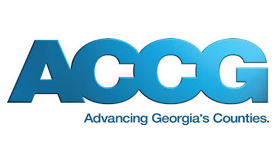By:
Frank E. Jenkins, III, Esq.
JENKINS & OLSON, P.C.
Attorneys at Law
15 South Public Square
Cartersville, Georgia 30120
(770) 387-1373
www.jnlaw.com
Being a good witness in court doesn't often come naturally. It requires some understanding of the process of examination and cross-examination and of certain rules to observe in giving testimony. The following are some general rules which will help you avoid the myriad problems that you will encounter if you are not careful. Follow these rules, and you will make your attorney happy.
- TELL THE TRUTH
This rule comes first and is the most important. Most witnesses do this. But certainly one of the best ways to get yourself in trouble as a witness is to not just tell a lie, but shade the truth. The better rule is simply tell it as it is, or more appropriately, as you remember it. Once you tell the truth, you don't ever have to remember what you have said.
- DO NOT GUESS
Guessing in this sense means offering an answer when you are not sure whether it is true. It's very different from not telling the truth, but often is the result of a witness trying to be helpful to the examiner. (A big mistake) It often proves disastrous, as guessing gives vent to the lawyer's ability to cross a witness up in a way that should never happen. If you have to make an estimate, be sure to preface your testimony that it is an estimate. But a guess is not acceptable.
- BE CAREFUL IN MAKING ESTIMATES OF TIME OR DISTANCE
Good preparation requires work with your lawyer in anticipating testimony you may have to give as to time of an event or an action or the distance that might be relevant to testimony. With that in mind, it's helpful to think in advance about when events occurred or what is the distance or what was the time interval. But, in any event, it is well to preface any testimony with the condition that your testimony is an estimate.
- AVOID ABSOLUTES
Avoid using any of the following answers: "absolutely not", "never", "under no circumstances", or any other type of absolute or irreversible response. Often the trier-of- fact interprets these absolutes more as defensive answers which serve to undermine your credibility as a witness.
- IF YOU DO NOT KNOW THE ANSWER, SO SAY
This is a corollary to the rule on guessing. It is better not to remember an answer, if that is the truth, than to try to guess the correct answer. If the truth is that you do not remember or do not know, then that is the best answer and the truthful answer.
- DON'T CRITICIZE YOUR MEMORY OR RECOLLECTION
If you are critical of your memory or recollection with such terms as "my memory is bad" or "I have trouble remembering these things," then you can bet the trier-of-fact will have difficulty accepting the validity of your testimony. If you don't remember something, simply say you don't remember, but don't be critical of your memory.
- DON'T TRY TO JUSTIFY YOUR ANSWER
Once you try to justify an answer, you have conveyed to the trier-of-fact that you are either uncertain about the validity of your answer or you think it's not worthy of belief. Testify forthrightly, but don't try to justify answers.
- KEEP YOUR ANSWERS SHORT AND TO THE POINT
This is related to the necessity that you listen to the question. Short, to the point answers are far better than long drawn out rambling dissertations. Also, there is less chance that you will volunteer information not responsive to the question which serves as cannon fodder for the cross-examiner.
- DO NOT REFER TO DOCUMENTS OR ANY INFORMATION KNOWN BY OTHERS NOT IN THE ROOM
If you are asked a question that's contained in a document, but you do not know the answer, then say you do not know the answer. If you refer to another document as containing the answer, without being asked, then you've opened the door for the examiner to inquire of other information that may not be helpful to your cause.
- DO NOT PULL OUT DOCUMENTS THAT YOU HAVE NOT PREVIOUSLY FURNISHED TO YOUR COUNSEL
This is related to the prior rule. Surprising your lawyer with documents may serve to undermine his or her conduct of the case or invalidate testimony that you have given. Unless you are specifically asked about a document, do not refer to it if it is not something already in evidence or available to all the parties.
- DON'T GET ANGRY OR EXCITED
Before the gods destroy a person, they make him mad. Once you give way to the passion of anger or excitement, you have given up your ability to think clearly and rationally about the questions asked and the answers given. Don't let that happen, no matter how much an irritant the opposing counsel may be.
- LISTEN CAREFULLY TO THE QUESTION
This rule is as important as any of the others. It means too that not only should you listen to the question, but also you should wait until the question has been asked in its entirety before you offer your response. Also, if you are not clear about what question was asked, don't hesitate to ask the counsel to repeat or clarify the question.
- DON'T REVEAL ATTORNEY-CLIENT PRIVILEGED INFORMATION
Never testify about information you learned in a meeting with your counsel. It is privileged and you are not required to reveal it. Again, your purpose is to testify what you know based on your personal knowledge, not what your counsel may have told you.
- DON'T VOLUNTEER INFORMATION
Listen to the question; be sure you know what's asked and simply answer the question. No more! If you volunteer information that is not responsive to the question, you will likely give unintended ammunition to the other side.





